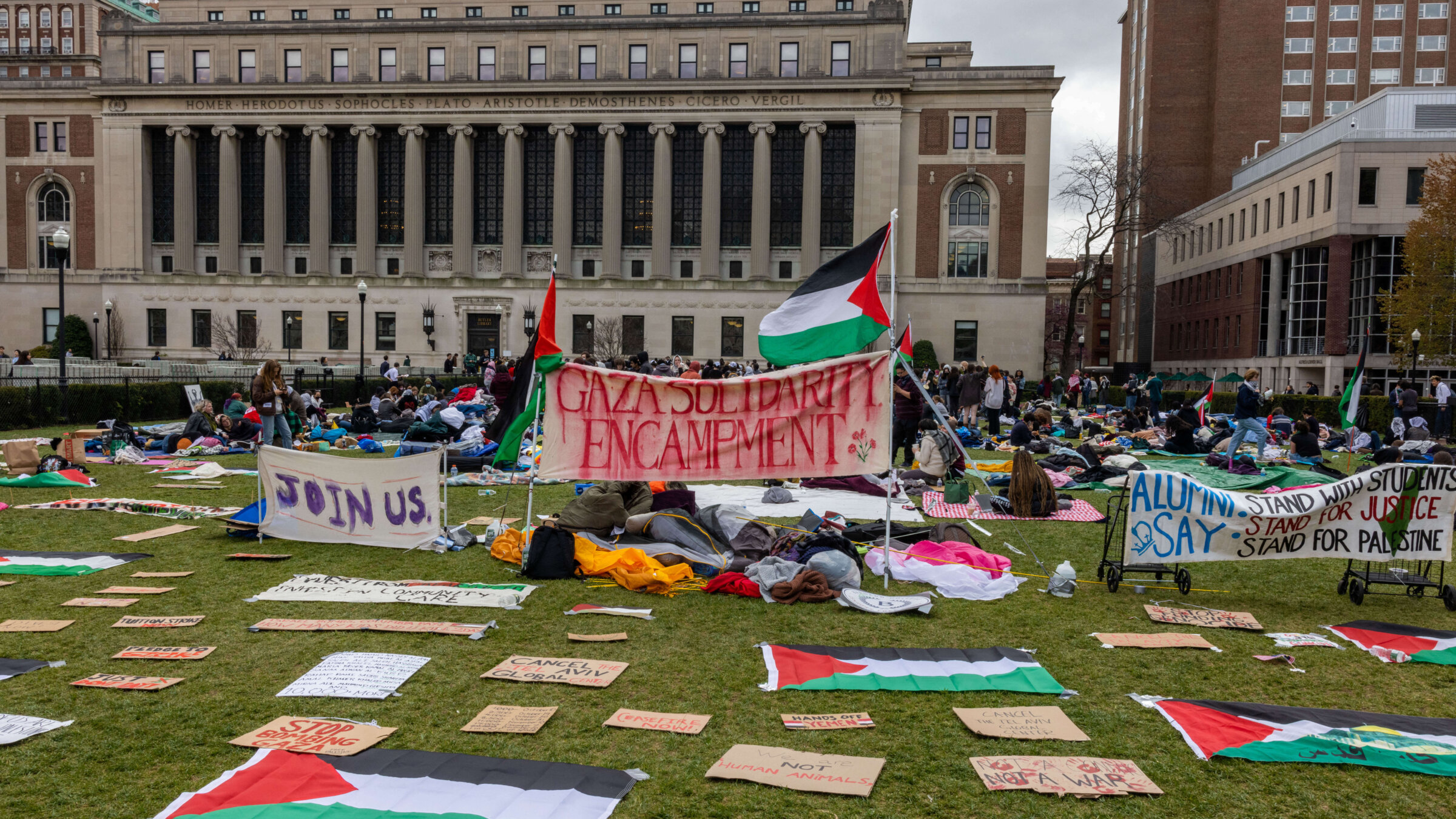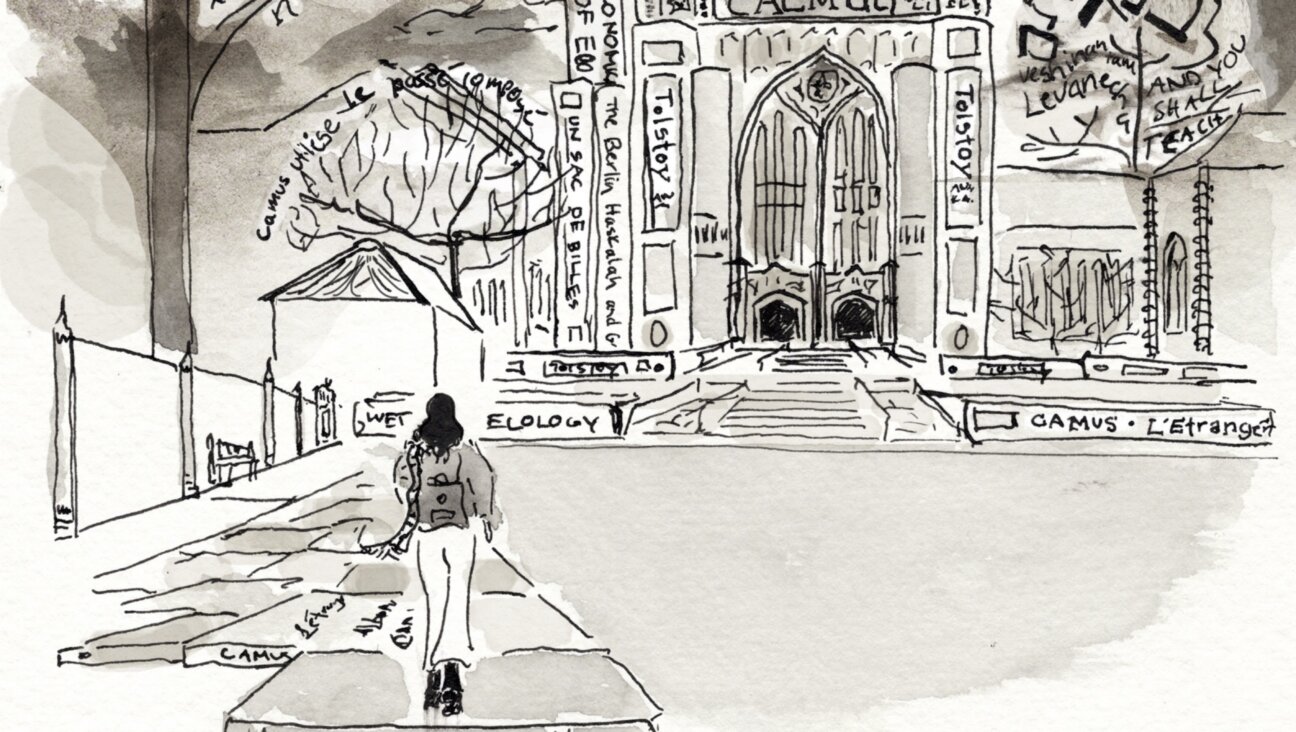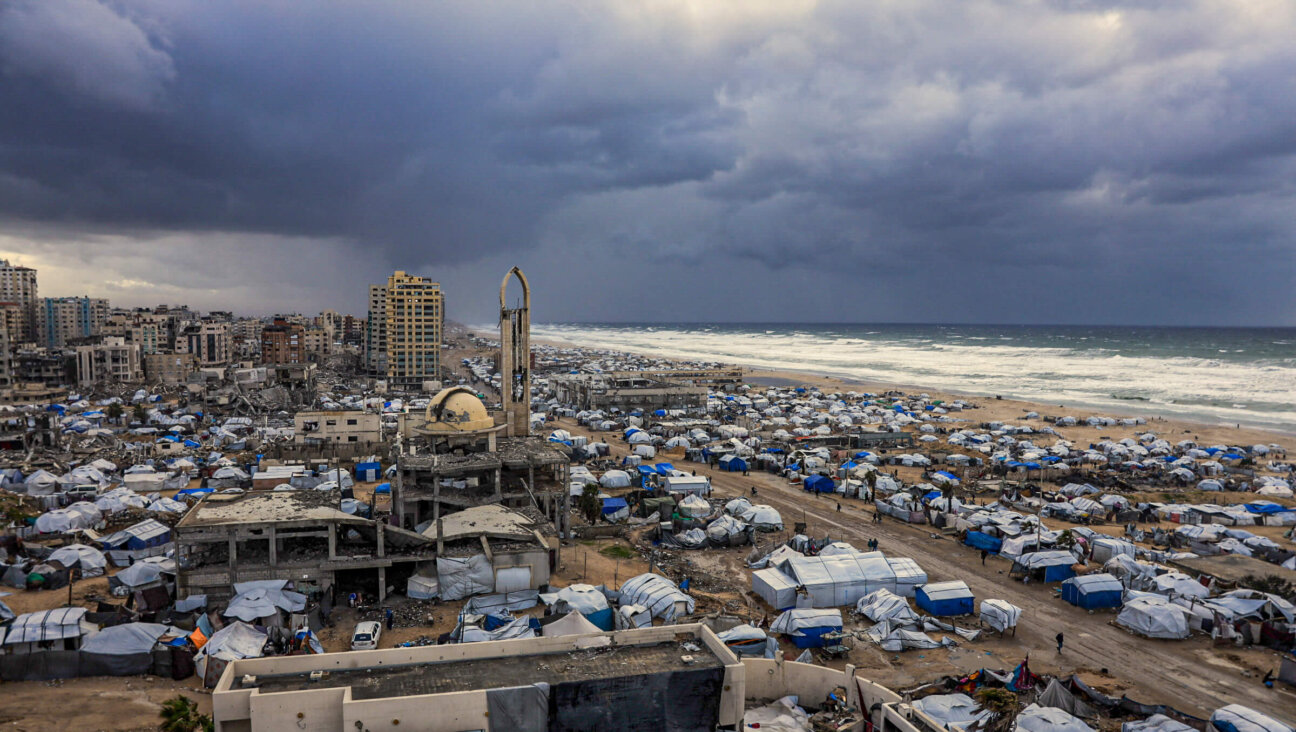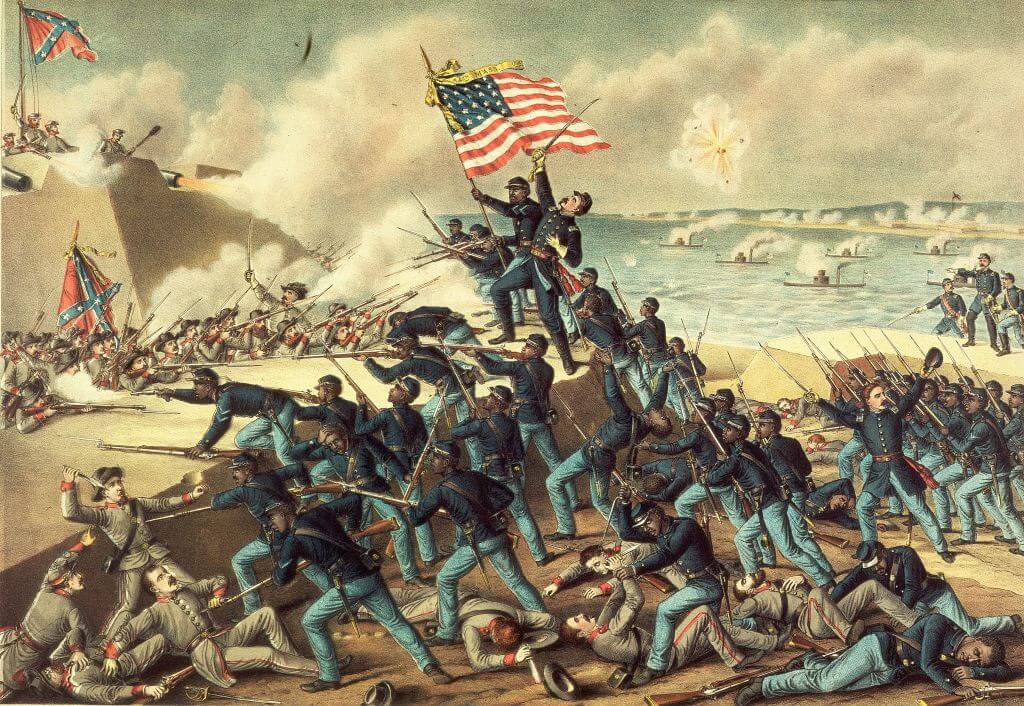‘Egregious’: A legal perspective on Columbia University’s mass arrests
Lawyers from the New York ACLU shed light on the university’s ‘shocking’ response to student divestment protests

Students occupy the campus ground of Columbia University in support of Palestinians April 19. Officers cleared out a pro-Palestinian campus demonstration on April 18, a day after university officials testified about antisemitism before Congress. Photo by Alex Kent/AFP via Getty Images
Police arrested more than 100 students and two legal observers at Columbia University Thursday after Columbia’s president, Nemat Shafik, fresh off of her congressional hearing on antisemitism on campus, asked the New York Police Department to remove them.
The day before, the students had pitched tents in the center of campus — what they call the “Gaza Solidarity Encampment.” It was a long-planned action that aimed to force the university to divest from corporations that profit from, in CUAD’s statement: “Israeli apartheid, genocide, and occupation in Palestine.”
The university suspended all students who had been arrested. Columbia professors and faculty, and commentators including Cornel West, who leapt the fence to join the protestors, expressed shock at Shafik’s choice to involve the police.
The “encampment and related disruptions pose a clear and present danger to the substantial functioning of the university,” Shafik wrote in her letter requesting the police to intervene. At a press conference, NYPD Chief John Chell said that the “clear and present danger” was identified by Columbia, not the police.
I spoke with Molly Biklen, the deputy legal director of the American Civil Liberties Union of New York, and Veronica Salama, one of its staff attorneys, to better understand the legal context surrounding the arrests. The interview has been edited for length and clarity.
Most students were charged with trespassing, and some with governmental obstruction. What do those charges mean?
Veronica Salama: New York penal law says a person has trespassed if they’ve knowingly entered or remained in a place unlawfully.
Columbia’s president sent out a letter to the NYPD notifying it of an unauthorized encampment and then requested it to make arrests. But there’s an open question as to whether the NYPD has authority to make those arrests. We know that there may be, you know, about three students or so that had received notice that they were suspended. And whereas the remainder of the students had not.
Molly Biklen: For obstruction of governmental administration, it’s a common charge people see with protests. It’s pretty low-level, and refers to a general interfering with police activity. It could be getting in the way of police officers. It does not have to be physical force.
How do you determine when someone has unlawfully gathered?
Salama: The main inquiry there is: Do the students have the license or privilege to to be on the lawn at that time?
In your experiences, is this type of response — calling in the police — unusual?
Salama: Absolutely. It’s the speed with which the university moved to remove the students who were peacefully protesting from the lawn, and the aggressive nature in which they did so.
One of our biggest concerns about this in bringing the NYPD onto campus is that the police deployed its Strategic Response Group, which we know to be one of the most violent factions of the NYPD. This hasn’t happened on Columbia’s campus in over 15 years. In 1968, when Columbia University called the NYPD to remove students, more than 700 students were arrested. And immediately after that, Columbia said it would never again do that to its students. That was a really low point for the university.
Before this week, Columbia University had seen several sit-ins, and occupations of buildings and the law. Those did not receive this forceful reaction. So why this time? We know that it must be related to the pressure that the university is experiencing to crack down on any speech that is critical of Israel.
The president invoked her alleged emergency powers, which means she must find an imminent danger to persons or properties. And so again, you also have to ask yourself, what is it about this group of students peacefully occupying the lawn that is inherently dangerous or violent? We’ve seen this elsewhere — that Palestinians or those who advocate for Palestinian rights are seen as inherently dangerous or inherently a risk to other people’s safety.
When you mention these past building occupations and protests at Columbia — some of which lasted for several days but police were not called to intervene — were students then also trespassing? But the university responded with a much lighter touch?
Salama: In the post-Vietnam era, we’ve seen many occupations of buildings on campuses. In 1985, there was a three-week occupation of Hamilton Hall at Columbia, urging the university to divest from South African apartheid, and 48 students were charged with disciplinary code violations. But they were at no point arrested, or threatened with arrest. They were not suspended. In 2008, there was an 11-day hunger strike and an encampment on Columbia’s Butler Lawn, the same lawn chosen for the Gaza Solidarity Encampment, over the continued gentrification of Harlem and the need to expand the Office of Multicultural Affairs of Columbia. And again, no arrests, no disciplinary violations even. The university actually met with and agreed to several of the students’ demands.
In 2016, we had an eight-day occupation of Columbia’s Low Library related to climate change led by the student group Columbia Divest for Climate Justice. They didn’t just occupy the whole building, but also part of the president’s own office! There were 19 events scheduled to take place in that building during those eight days that were forced to be relocated. And again, the president met with the students to discuss their demands, and the students themselves were very minimally sanctioned. I don’t need to belabor the point.
In all of these cases, we also saw no suspensions of the student groups, which is important because SJP and JVP were suspended by Columbia earlier in November 2023.
Why do you think the university responded this way now?
Salama: I won’t make guesses as to why exactly the university acted in this way. But I can say this issue of Israel-Palestine is not new. The aggressiveness of the university’s response to student actions — that is extremely new. There have been many times in Columbia’s past where there have been bombardments in Gaza and many lives lost, and there were protests on campus with tensions just as high.
Did Columbia violate the students’ individual or collective rights by this action?
Biklen: We and others are looking at those issues right now. There is no question that this kind of action does have a real chilling impact on people’s speech and their rights to put forward varying viewpoints.
Can you talk a little about where the right to free speech on campus bumps up against the right for students to be safe from harassment?
Biklen: Of course, there are lines, and students do have a right to be free from harassment on campus. Those are really important values. This action was not in a dorm. This was not even in a classroom. It’s out in an open space. So part of the things that people look at with this issue is that this is a traditional First Amendment space — in that it’s outside. And so when you’re looking at where those lines are, this is out in the open, where it’s not directed toward any individuals.
Salama: Columbia itself has also just put together their university code of conduct that describes how they draw that line. They say they are dedicated to what they call “uninhibited discourse.” And they say that they will only “limit expression in very limited circumstances.” Those are Columbia’s own words. It all makes the university’s actions all the more egregious.
Is there anything else you think that is really important for people to understand about this situation?
Salama: Universities, not just Columbia, really need to be examining the degree to which they are departing from their stated missions. And to be a space, for Columbia specifically — I quote again from their Affirmative Statement in their Code of Conduct — to have their “ideas tested, values questioned, minds to be changed with as few constraints as possible.”
Correction: A previous version of this story incorrectly stated that the NYPD was last called to dislodge student protestors at Columbia in 1968. The NYPD was called after a group of Black students occupied Hamilton Hall in 1987, and 23 students were arrested in 1996 for occupying the school’s administration building to push for ethnic studies programs.

















